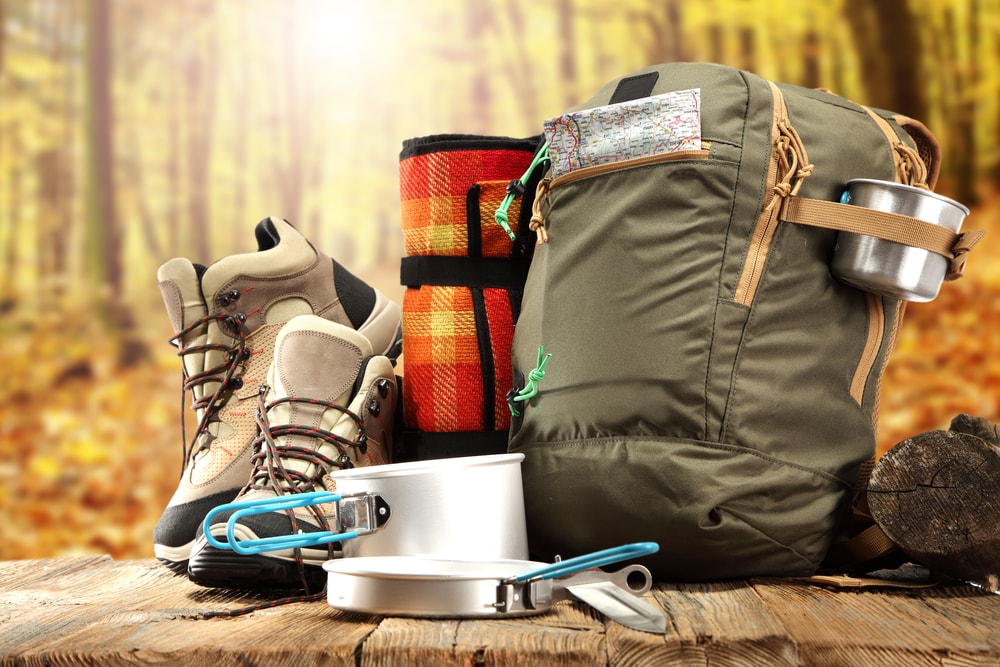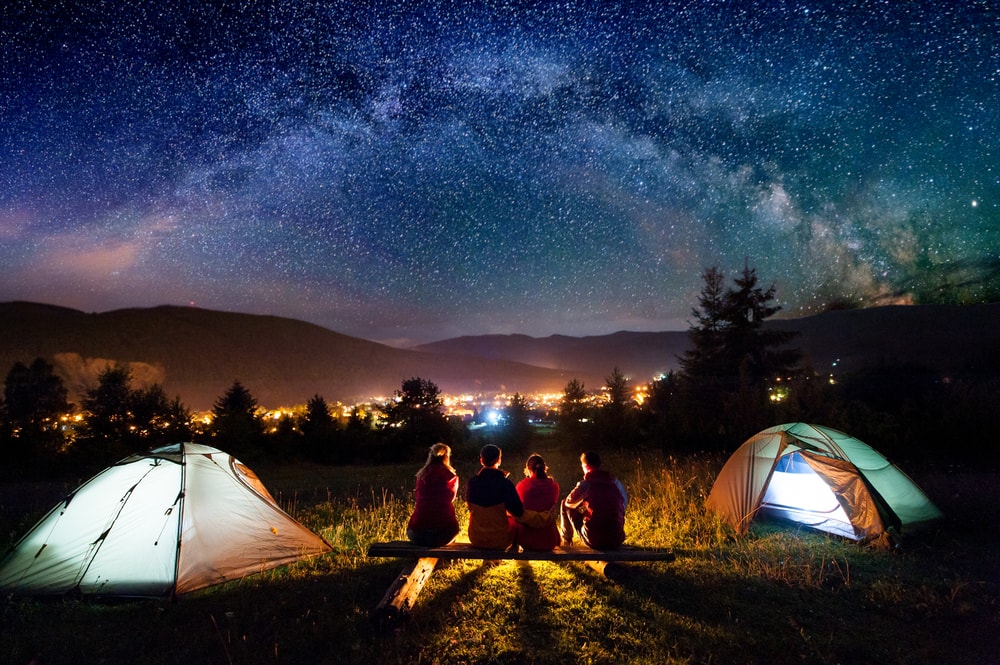Camping trips can take a lot of organising at the best of times. Remembering to pack everything you might need for just a few days sleeping in a tent takes lots of planning. Not to mention making sure everyone will be fed well (and have plates to eat their food on!). It’s inevitable that things will be forgotten and I think it’s fair to say that we’ve all been guilty of grabbing last minute supplies that are overpriced, over-plasticised and not very eco-friendly.
The temptation of convenience can turn making eco-friendly choices into something even more difficult to negotiate when planning and packing for a camping trip.
So, to help make all your future camping trips as eco-friendly (and easy) as possible, take a read of my top tips.
5 Tips For Eco-Friendly Camping
- Be Prepared
- Buy Second Hand Gear (Or Borrow Gear)
- Camp Locally
- Eat Green And Plan Your Meals
- Reduce Your Plastic Use
1. Be Prepared

There’s a reason why Guides and Scouts are such efficient campers — Be Prepared is their moto. And to make your time camping as eco-friendly as possible being prepared is everything. Planning ahead will mean that you won’t have to buy any last minute cheap camping gear that won’t last more than one camping trip. So make lists, do your research on the where you plan to go and what facilities are available, cook up some yummy treats before you go, and make sure you’ve got everything in order well ahead of time.
2. Buy Second Hand Gear (Or Borrow Gear)

With so much new camping gear coming onto the market each year there’s a surplus of second hand gear out there that is in excellent condition. Buying second hand is especially good for those who don’t camp that often, and you’ll save a few pennies, too. There are a bunch of second hand gear stores popping up, and you can even buy online.
Borrowing gear from friends and family is also a good way to cut down on buying unnecessary gear. Or you can rent gear from local stores or your nearest REI store.
If, however, you find yourself camping every weekend of the year in a variety of conditions, then getting your own gear is essential. In this case, it’s well worth spending more on high quality, eco-friendly camping gear from brands that are working towards more sustainable practices. It will last longer and you’ll feel warm and fuzzy on the inside knowing that you’re helping to make a change.
your own gear is essential. In this case, it’s well worth spending more on high quality, eco-friendly camping gear from brands that are working towards more sustainable practices. It will last longer and you’ll feel warm and fuzzy on the inside knowing that you’re helping to make a change.
3. Camp Locally

Cutting down on your travel distances is an easy way to be reduce your camping carbon footprint. Before you decide to drive 10 hours just to sit around a campfire and eat as much meat as possible, check out the campgrounds that are within a couple of hours of where you live.
Better still, choose a campground that is close to everything you need so you don’t have to drive far to get out onto the trail or to the nearest attractions. Camping locally is also a great way to explore the that is on your doorstep. So many of us seek out far-flung places to go adventuring, but there’s often loads of fun to be had closer to home.
4. Eat Green And Plan Your Meals
Speaking of meat, try replacing some of the meat on your camping grill with veggies. I’m not suggesting you cut out the meat completely, just reduce it a little. If grilling veggies is new to you then you’ll be in for a very pleasant surprise. Cooked well, vegetarian BBQ food can be just as juicy and enjoyable as the meaty magic that you’re used to. Go on, give it a try!
Planning your meals before you go camping will also help to reduce waste and food packaging. Opt for canned ingredients that don’t require refrigeration and whose packaging can be recycled at the end of the trip. And if you’re keen to try regional delicacies then seeking out places to buy locally-grown food is a fun way to reduce your camp carbon footprint.
5. Reduce Your Plastic Use
Plastic-free living is not easy. It takes lots of big changes that can be difficult to implement if you try to make them all at once. Just trying to reduce your plastic use is a great first step towards longer term commitment to getting plastic out of your life.
And there are lots of steps you can take to do this when camping. These include taking refillable water bottles and water carries with you. Use the water on the campground instead of buying bottled water. It’s also easy yo avoid using cling wrap to store your packed lunch or leftover food. Instead wrap up or cover your food with reusable beeswax wraps.
You can also bring along old tupperware boxes to store food in and if you need to buy camping cutlery then opt for sets made of bamboo. These will last for years and their production is sustainable.
Final Thoughts
A little forethought will go a long way when making green choices at camp. Some of these tips also apply to everyday life, and most of the tips don’t take much of a sacrifice to put them into place.
Hopefully, reading these easy to implement eco-camping tips has made you realise just how doable being more green can be. Keen to know more? We’ve put together a more comprehensive list of simple ways to become a more eco-friendly camper that will make eco-friendly camping easier than ever.



